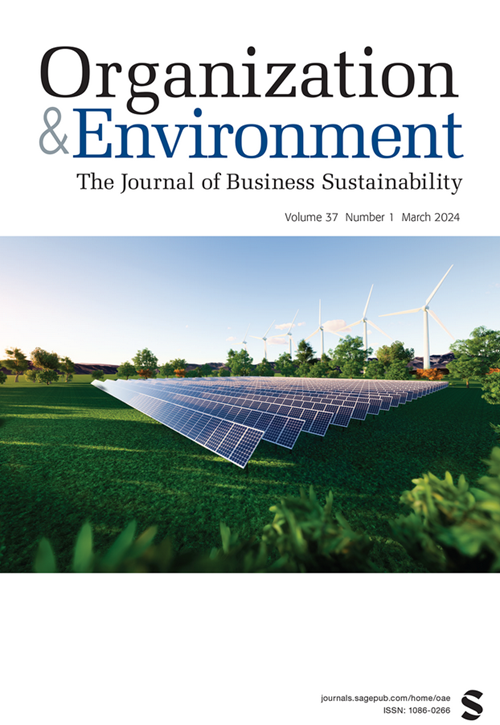不敢行动?首席执行官的政治理念分歧如何影响环境创新
IF 7.3
4区 管理学
Q1 ENVIRONMENTAL STUDIES
引用次数: 0
摘要
在应对气候变化的过程中,一些企业选择开发环境创新。鉴于环境创新战略属于气候变化保护这一政治敏感领域,我们推断首席执行官的政治意识形态分歧会对所选战略产生重大影响。借鉴威胁反应理论,我们发现首席执行官与共和党总统的意识形态分歧会对环境创新强度产生负面影响,而与民主党总统的意识形态分歧则会对环境创新强度产生正面影响。此外,增加可持续发展导向的沟通会削弱这种影响。我们利用 S&P 500 公司 CEO 的纵向数据集(2010-2018 年),其中包含 916 个公司年观测值和 188 个独特的公司,提出了环境创新、CEO 政治意识形态和威胁反应理论的理论和管理意义。本文章由计算机程序翻译,如有差异,请以英文原文为准。
Too Afraid to Act? How CEO Political Ideological Divergence Influences Environmental Innovation
In their efforts to combat climate change, some firms choose to develop environmental innovations. Given that environmental innovation strategies fall into the politically sensitive area of climate change protection, we theorize that CEO political ideological divergence can substantially impact the chosen strategy. Drawing on threat response theory, we find that CEO ideological divergence from a Republican president negatively affects environmental innovation intensity, while ideological divergence from a Democratic president positively affects it. Moreover, increased communication of sustainability orientation weakens this studied impact. We utilized a longitudinal data set of S&P 500 CEOs (2010–2018) with 916 firm-year observations and 188 unique firms, to present theoretical and managerial implications for environmental innovation, CEO political ideology, and threat response theory.
求助全文
通过发布文献求助,成功后即可免费获取论文全文。
去求助
来源期刊

Organization & Environment
Multiple-
CiteScore
11.20
自引率
5.70%
发文量
19
期刊介绍:
Organization & Environment encourages informed discussion about the social roots and consequences of environmental problems and stimulates deeper reflection on the meaning and significance of the natural world. By critically examining the impact of human production and consumption systems on the natural environment, Organization & Environment develops new perspectives on organizations that encourage environmentally sensitive reflection, inquiry, and practice.
 求助内容:
求助内容: 应助结果提醒方式:
应助结果提醒方式:


